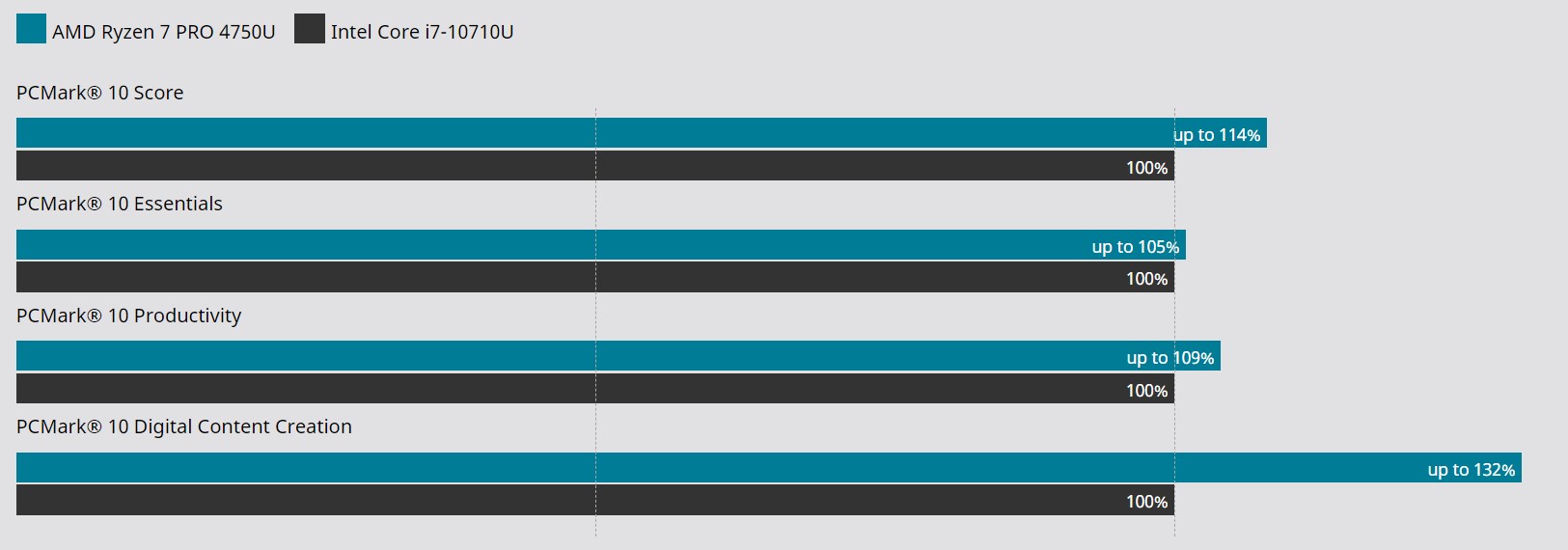AMD yesterday released its Ryzen Pro 4000 processors for business, adding the AMD Ryzen 7 Pro 4750U, Ryzen 5 Pro 4650U, and Ryzen 3 Pro 4450 to AMD’s mobile business processor lineup.
| Model | Cores / thread | TDP | Boost / base frequency | GPU cores | Cache |
| AMD Ryzen Pro 4750U | 8/16 | 15W | Up to 4.1 / 1.7 GHz | 7 | 12MB |
| AMD Ryzen Pro 4650U | 6/12 | 15W | Up to 4.0 / 2.1 GHz | 6 | 11MB |
| AMD Ryzen Pro 4450U | 4/8 | 15W | Up to 3.7 / 2.5 GHz | 5 | 6MB |
AMD Ryzen Pro 4000 series processors use AMD’s Zen 2 architecture and built with TSCM’s 7nm FinFET. By introducing the Ryzen 7 Pro 4750U, AMD has raised the max core count of its mobile business processor to eight. In its benchmark comparison against Intel’s six-core Core i7-10710U, AMD claimed that the Ryzen 7 Pro 4750U has a five per cent performance lead over its competitor in the PCMark 10 Essentials benchmark and a 32 per cent lead in PCMark 10 Digital Content Creation benchmark. In addition, AMD wrote that the new Ryzens have twice the performance per watt on its product page.
All three models have a configurable TDP between 10W to 25W, and supports up to DDR4 3200MHz RAM or LPDDR4 4266MHz RAM.
AMD Ryzen Pro series differentiates from the consumer-oriented Ryzen series by its added security. It features extra safeguards like memory encryption, secure boot, and support higher layer security functions like Windows 10 Device Guard.
Ryzen Pro processors also undergo enterprise-grade quality assurance checks. AMD guarantees 18 months of planned software stability, feature consistency, as well as 24 months of planned availability.
AMD Ryzen Pro 4000 series will initially arrive in HP and Lenovo designs in the first half of 2020.

